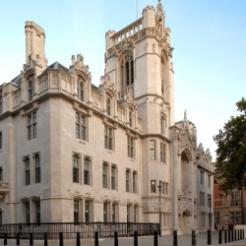Victoria Cook, who acted for the Citizens Advice Bureau in the recent Supreme Court case on volunteering rights, gives her thoughts on the decision not to award volunteers the same rights as employees.
The Supreme Court’s decision in X -v- Mid Sussex CAB brings important clarity for the not-for-profit sector on the legal status of volunteers. The case challenged the established position in English law that volunteers do not fall within the protection of anti-discrimination legislation and argued that protection for volunteers was provided under European law.
The Supreme Court Judgment, however, resoundingly confirms that volunteering activities fall outside of the anti-discrimination laws relating to employment. So is this the right decision for volunteering?
I am often challenged as to why volunteers should not be protected from discrimination. Surely it must be right that volunteers are protected in the same way as other members of staff? The Supreme Court Judgment is clear that the appeal does not concern this moral stance. The case concerns whether the current European or English law gives protection for voluntary activities.
The moral virtues of the issue should not be ignored, but they do need to be balanced against the consequences of extending legal protection. Concerns have been raised by both volunteers and volunteer-involving organisations alike on introducing additional legislation for volunteers. It is felt that it may in fact present a barrier to volunteering (see Volunteering England’s volunteer rights inquiry final report March 2011).
If volunteers were protected the legal landscape for voluntary sector organisations would dramatically change. In most voluntary sector organisations the majority of staff are likely to be volunteers. It would not be unusual for an organisation to have a handful of staff and 40 or 50 volunteers. Extending an organisation’s legal responsibility to volunteers would dramatically affect how the organisation could operate. For smaller organisations, such as small community groups, the complexity of the anti-discrimination laws would place additional obligations on the leaders of those groups to understand the law and apply it in the correct way. This may be a burden that such organisations would feel to be too onerous.
Protection could be costly
X was not arguing that all volunteers should be protected, only those volunteers whose volunteering was akin to employment. It is difficult to argue that a volunteer who collects donations for 30 minutes once a year should receive the same protection as a volunteer manager who volunteers every week. But arguing that only some volunteers would be protected gives no certainty to either party. There would inevitably be cases brought by volunteers where the entitlement to bring a claim would be a preliminary issue. The cost of employment litigation may already be significant for organisations and extending the remit to volunteers may increase costs to a level which they could not bear.
There would be other cost implications. The cost of insurance would be likely to increase, recruitment processes for volunteers would need to become more formal. Consequently the processes for volunteers would be more time consuming and demanding.
When faced with a question, was the decision right, the answer must be yes. The combined effects of increased regulation could, on a worst case scenario, deter organisations from embracing volunteer engagement which would bring with it its own negative social consequences. It would also bring volunteering within a formal forum which many volunteers would reject - they volunteer because they are free to do so whenever and in whatever way they wish. In a sense, the voluntary sector regulates itself. No organisation would wish to discriminate against a volunteer. Treating volunteers unfairly would significantly damage their reputation and credibility. The way forward for improving volunteering is to focus on embracing and improving good practice, an approach which the Citizens Advice service are keen to advocate.
Victoria Cook, is associate at Bates Wells & Braithwaite, who acted for the CAB in this case.










